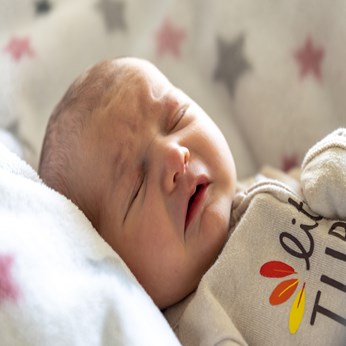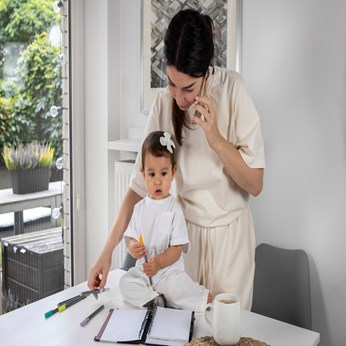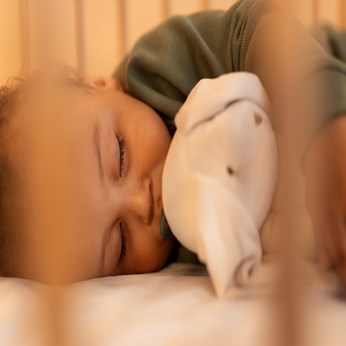What Causes Post Delivery Depression
It is a common question that many new mothers wonder; why do they get post delivery depression when childbirth is such a wonderful occurrence in their lives. It is not merely psychological as many assume, but is a combination of biological, environmental, social as well a psychological factors; with post delivery depression being common in every 1 out of 4 women.
Main causes of post delivery depression:
Psychosocial causes make some women more prone to post delivery depression than others. Those who have a history of depression or mental illness and those that are already leading stressful lives are prone to post delivery depression.
It is also found that personalities like those having maladaptive coping attitude, perfectionist tendency or suffering from low self-esteem could be affected by psychosocial causes of post delivery depression.
It is also significant to note that financial hardships bring about post delivery depression; finances are required for the new set of responsibilities brought about by a new life, with the new mother very much concerned about the secure future of the child.
During pregnancy and after childbirth the spouse plays a very important role in the woman’s life; marital problems and dissatisfied marital relationships could aggravate depression after delivery.
Women could be prone to post delivery depression even when there is a discrepancy between what the new mother expected of motherhood and what she actually experiences.
Post delivery depression could also set in and intensify when the new mother’s immediate family is less supportive or toxic.
A biological or clinical cause of post delivery depression is that there is an increase of a brain protein Monoamine oxidase A or MAO-A, with MAO-A level recording to be 43% higher in 4-6 days following delivery. This increase in brain protein leads to the removal of serotonin, a chemical that helps in the maintenance of normal mood, leading to natural post delivery depression.

The idealistic notions of perfect parenting and good mothering could weigh heavy on a new mothers mind when she realizes as a mother that the whole notion is unattainable and unrealistic. Her ideas of being a supermom and ideal parent are shattered and the new mother fears she would not be able to achieve and sustain those standards and starts to feel depressed.
The new mother feels a sense of guilt when she is not able to look after the baby according to standards built by society and in her mind; it is natural for a newborn to cry from time to time, but she feels depressed and a failure that she is unable to keep the child happy and from crying.
Finally it is best to note that post delivery depression in a new or experienced mother is not due to a single cause; it is an amalgamation of various factors. It is just to be understood that some women are more prone to depression, while others are significantly affected by the environment. Studies are still on to study if post delivery depression is also caused by hereditary causes.
Image Courtesy: Google
Take the next step toward your goals
Share your requirement and find the best care providers in your area
-
Looking for a caretaker’s job? Build your profile and get in touch with families in your vicinity.
-
Discover nannies, babysitters, cooks, housekeepers, pet sitters, and elder care under one roof.
-
Get all the support you need to run a successful care center.
-
Search for appropriate centers near you depending on your needs.
Care Corner Insights: Blog Library

Overnight Babysitters in Bellevue, WA for Business-Travelling NRI Parents: Safety & Policies
For many NRI parents living in Bellevue, WA, frequent business trips are a reality. While traveling, one of the biggest concerns is ensuring your children are safe, cared for, and emotionally supported during overnight stays. Overnight babysitters ca

Indian Home-Style Cooks in Queens, NY: Tiffin-Style Weekly Meal Prep from Your Kitchen
Queens, NY, is home to one of the most diverse food cultures in the country, and Indian cuisine holds a special place among families looking for authentic, comforting meals. While restaurant takeout is convenient, nothing compares to the taste and nu

Baby Sleep Problems: What is Sleep Regression and How to Handle It
If you’re a parent, you know that baby sleep is one of the greatest mysteries of life. One day your little one is snoozing like an angel, and the next day they’re suddenly waking up every hour, fussing, or refusing to nap. Before you panic, there’s a

What is Validation Therapy? A New Approach to Dementia Care
Caring for loved ones with dementia is one of the most emotionally challenging journeys a family can face. Traditional methods often focus on correcting memory lapses or redirecting confused thoughts—but that can sometimes lead to frustration, stress

What is a Part-Time Nanny and Do You Need One
Parenting is a beautiful journey, but let’s be honest—it can also be exhausting! Between work deadlines, household chores, and family responsibilities, sometimes there just aren’t enough hours in a day. That’s where part-time nannies step in, offerin

Part-Time Housekeeper Hiring in Alpharetta, GA: Weekly Schedules, Pricing, and Must-Do Tasks
Keeping a home spotless while balancing work, family, and personal commitments can be overwhelming. For families and professionals in Alpharetta, GA, hiring a part-time housekeeper is one of the most practical solutions. Whether you need help once a

Affordable Daycares in Irving, TX with Indian Menu Options: Parent Reviews & Enrollment Tips
Finding the right daycare for your little one is never an easy decision—especially if you’re looking for one that fits your budget and offers familiar food options like an Indian-inspired menu. For parents in Irving, TX, the good news is that several

Can Babies Sleep on Their Side? Tips for Safe Baby Sleep
When it comes to newborns, every parent worries about the smallest details—how they sleep, what they wear, even which way they turn their tiny heads. One common question that pops up is: “Can babies sleep on their side?” The short answer? Not recom

8 Benefits of Hiring a House Cleaner for Your Home
Let’s be honest — keeping a home sparkling clean while juggling work, family, and daily life can feel like a full-time job in itself. That’s where professional house cleaners step in, turning the chaos into calm. If you’ve been debating whether to br

How to Care for a Gassy Baby? What’s Normal and what’s not – Expert Advice
If you’re a new parent navigating the world of burps, bubbles, and baby fussiness—welcome to the club! Gas in babies is incredibly common, especially in the first few months. But how do you know what’s normal and when it’s time to call in expert help